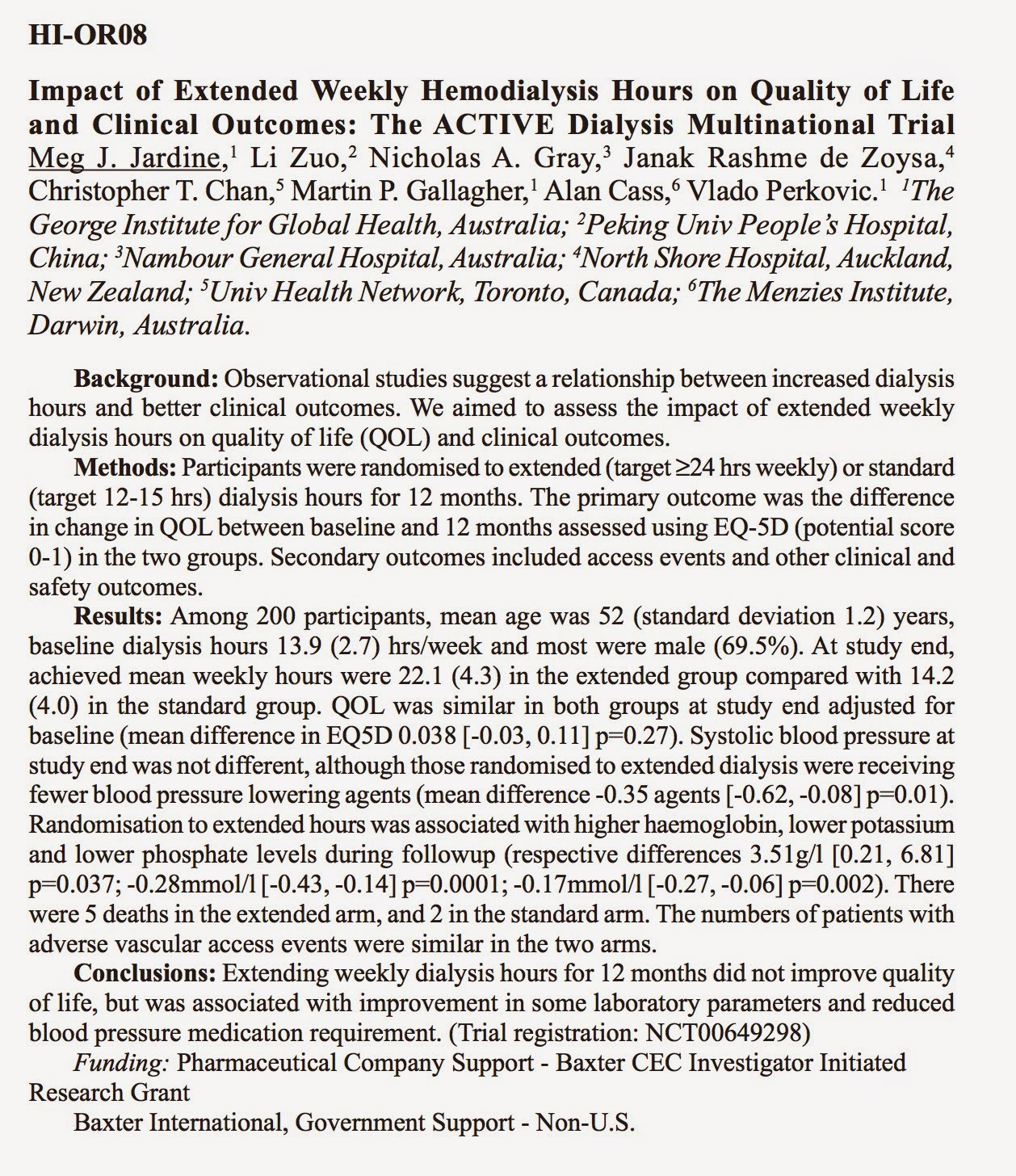These researchers did a small between-patient study with low power to compare people on 24 hours of dialysis vs 12 hours of dialysis a week. They found that patients in the 24 hour arm had improved blood pressure (reduced intake of BP meds in the 24 hour arm), improved potassium and phosphate levels, and found no significant differences in a quality of life questionnaire given to the two arms. From this, the main conclusion they present is that (italics mine) "extending weekly dialysis hours for 12 months did not improve quality of life, but was associated with improvement of some laboratory parameters and reduced blood pressure requirement."
If medical researchers can't even figure out what they can conclude from a null result from a low powered study, they should not be allowed to do such studies. I also looked at the quality of life questionnaire they used. This questionnaire doesn't even begin to address important indicators of the quality of life of a patient on hemodialysis. A lot depends on the type of life the patient on dialysis was leading before he/she got into the study; what he/she does for a living (if anything), what other health problems he/she has,... These are the things that the questionnaire would measure; the questionnaire doesn't even tackle relevant quality of life variables associated with increased dialysis.
So, not only did they draw the wrong conclusion from their null result, the instrument they are using is not even the appropriate one. It would still have been just fine if they had not written "extending weekly dialysis hours for 12 months did not improve quality of life."
What a waste of money and time this is. It is really disappointing that such poor research passes the rigorous peer review of the Journal of the American Society of Nephrology. Here is what they say in their abstracts book:
"Abstract submissions were rigorously reviewed and graded
by multiple experts."
What the journal needs is statisticians reading and vetting these abstracts.

No comments:
Post a Comment